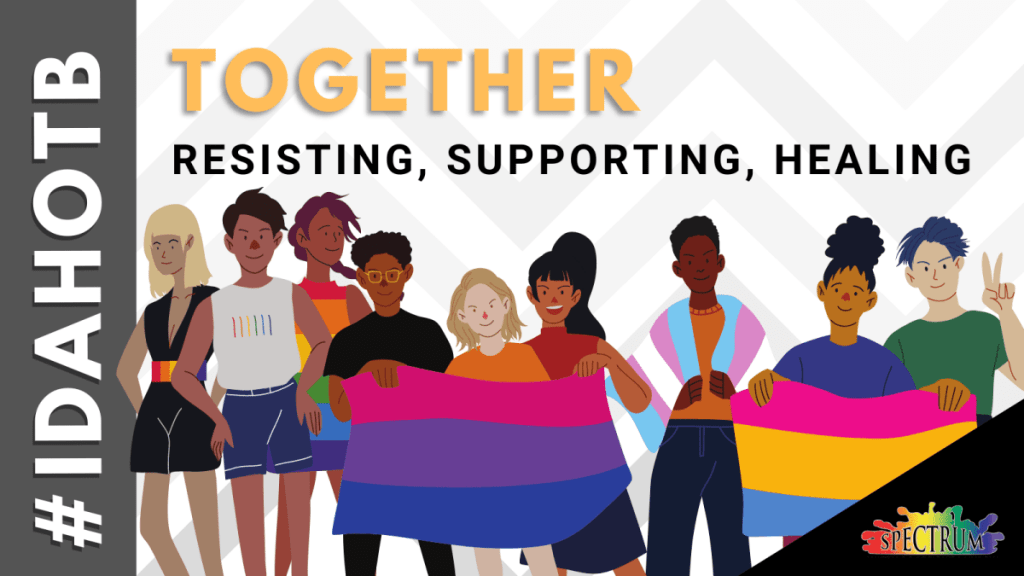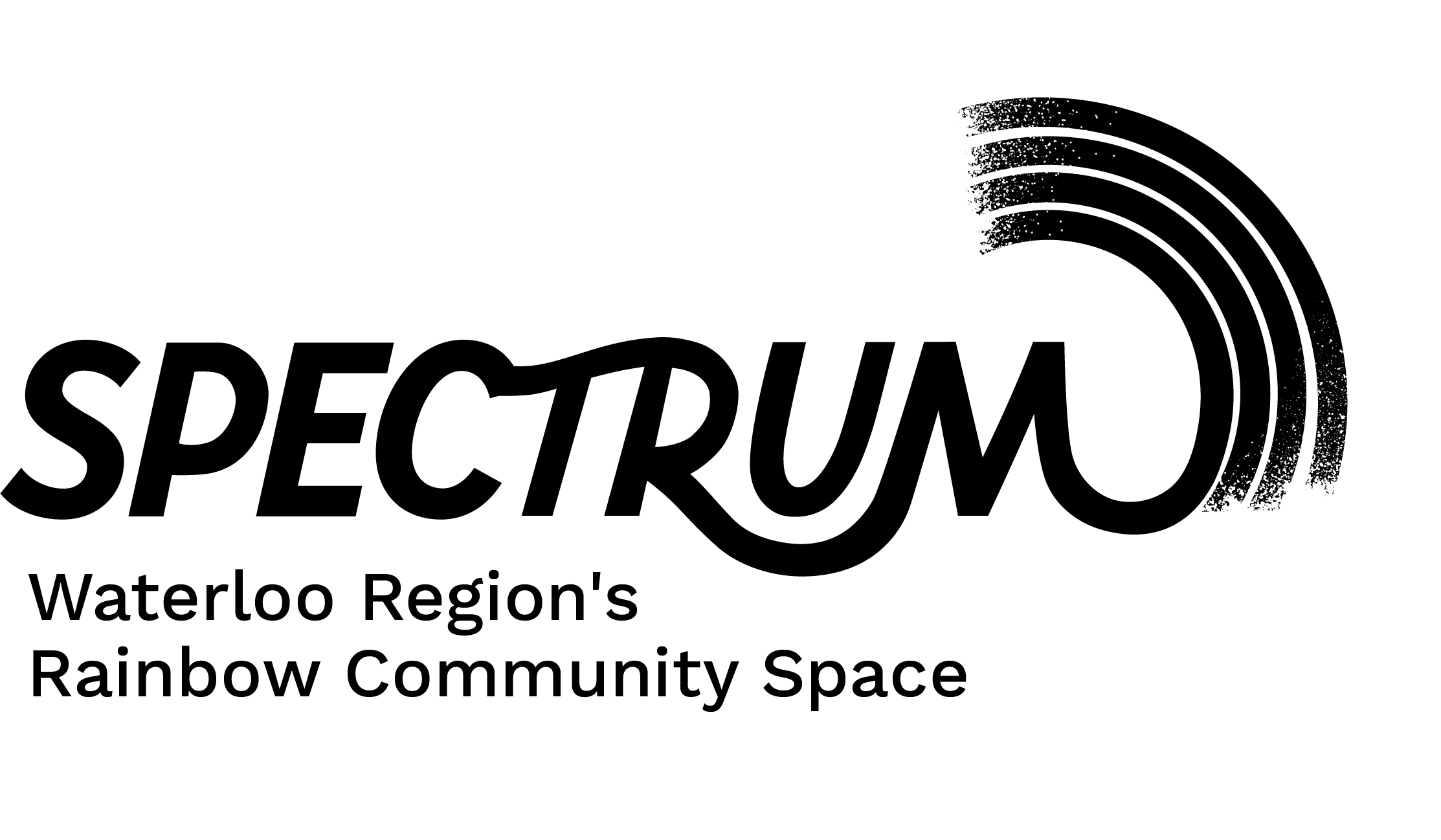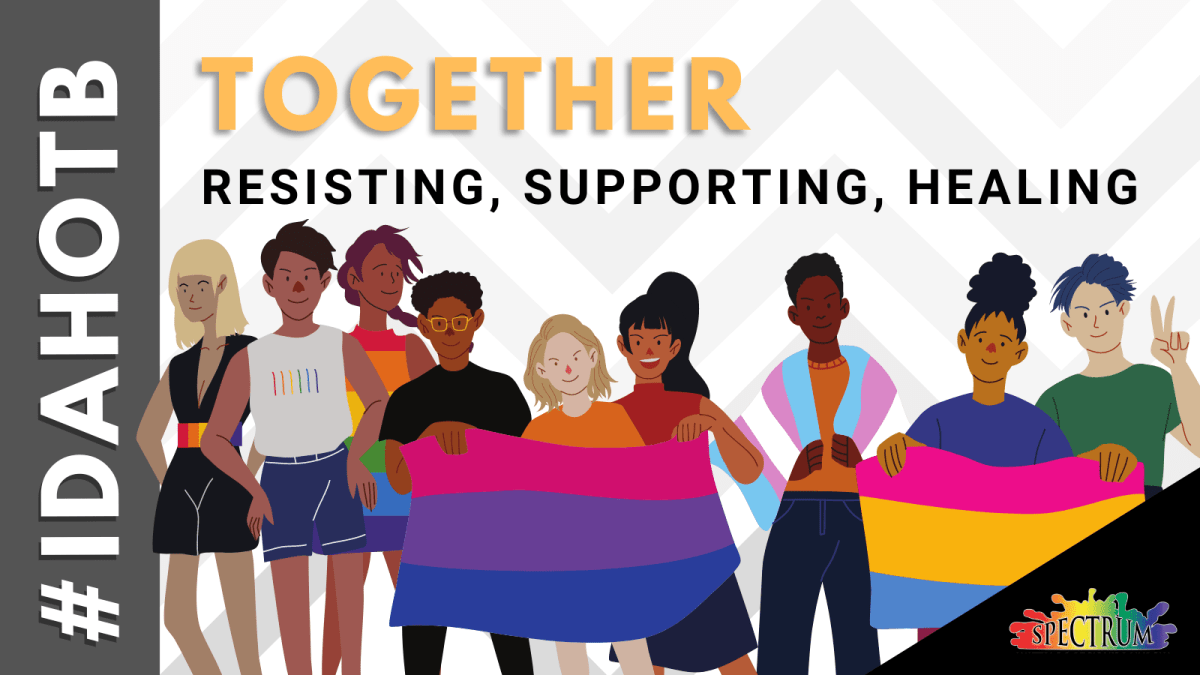IDAHOTB 2021: Together resisting, Supporting, and Healing

Created in 2004, the International Day Against Homophobia, Transphobia, and Biphobia exists to draw attention to the violence and discrimination experienced by LGBTQ2+ people. It is observed on May 17th to commemorate the World Health Organization’s declassification of homosexuality as a mental disorder, which did not occur until 1990.
While strides have been made with regard to equality for people with marginalized sexual orientations, LGBTQ2+ people still do not have equal rights. And while people have grown more accustomed to gay and lesbian relationships, discrimination against Bisexual and Pansexual people is still shockingly rampant. Bisexual people experience higher rates of violence and are less likely to receive critical health screenings than gay men and lesbians.
People attracted to multiple genders also have much lower social support than gay men and lesbians. Bisexual people are significantly less likely to be out to everyone in their lives. There is also still widespread distrust of Bisexual and Pansexual people as potential romantic partners, even within the LGBTQ2+ community. This inter-LGBTQ2+ discrimination means that Bisexual and Pansexual people both experience more severe marginalization and have less access to the social support needed to deal with that marginalization.
The escalation of hateful rhetoric over the “trans debate” in the United States and the UK is another painful reminder of how far we still have to go. Politicians fan the flames of transgender and non-binary hatred by “debating” their existence and pushing legislation aimed at banning them from public spaces and public life.
In the United States, more than 100 anti-trans bills have been proposed in 33 states banning things like trans participation in sports or even transition-related medical care. And while Canada, a notable haven for “rainbow refugees” and one of the first countries to legalize marriage equality, conversion “therapy” is still legal in half of the provinces.
There is no scientific evidence that a person’s gender or sexual orientation can be changed through “therapy”, and a wealth of evidence to support that people who experience conversion “therapy” experience lasting and irreparable harm. A third of men who survive conversion “therapy” go on to attempt suicide. And yet, there are federal MPs who are currently advocating against efforts to fully outlaw this outdated and unspeakably cruel practice.
This May 17th, LGBTQ2+ people need your support more than ever. LGBTQ2+ people have disproportionately suffered the economic and health impacts of COVID 19, and are doing their best to get by during a cultural moment in which it’s seen as acceptable to debate their very existence. So please ask yourself: what direct action can I take to support LGBTQ2+ people in my community, and what might that look like?
Whatever you decide, remember that silence is not an option if you truly care about the safety and well-being of LGBTQ2+ people in your community.

